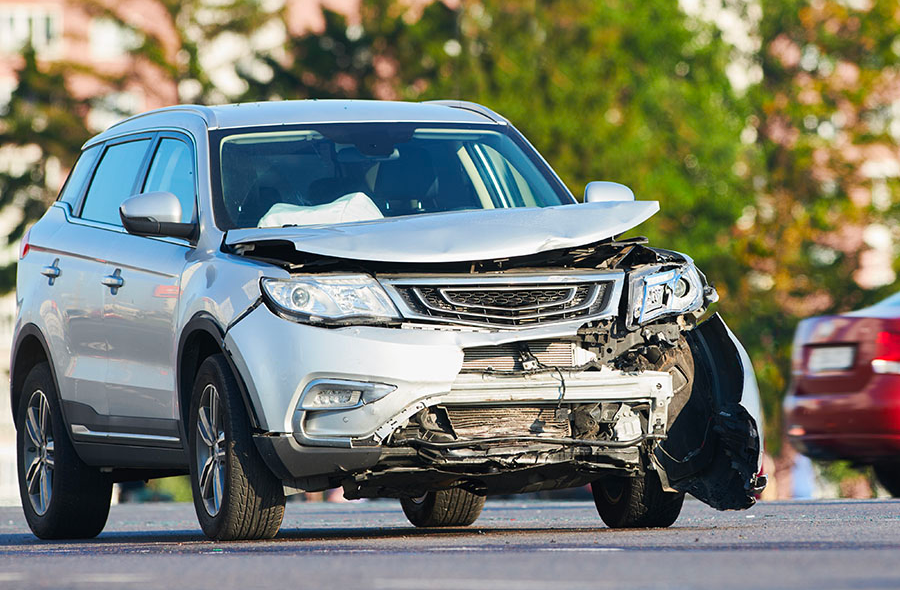
Throughout my thirty years as a personal injury attorney, a recurring and challenging issue for many clients is managing interactions with an at-fault party’s insurance company after an accident. Navigating this complex terrain of insurance claims is daunting, often riddled with delays and frustrations. This isn’t just a matter of legal procedures; it’s about real people facing genuine hardships. In this guide, I’ll provide insights and actionable advice on how to effectively handle situations where the insurance company is less than cooperative, helping you transition from a state of confusion to one of informed action.
How to Tell If Your Insurance Company is Giving You the Runaround
The other insurance company isn’t your friend
When you’re involved in an auto accident, it’s important to remember that the insurance company of the at-fault party is not your ally. Their primary goal is to protect their bottom line, which often means minimizing your settlement or denying your claim outright. This realization can be a harsh wake-up call, especially when you’re already dealing with the aftermath of an accident. Recognizing the signs of an insurance company giving you the runaround is the first step in fighting back for what you rightfully deserve.
How Insurance Companies Give You the Runaround
- Lowball Offers: The initial offer made by an insurance company is often much lower than what your claim is truly worth. They bank on the fact that you might accept this offer quickly, especially if you’re in a desperate situation.
- Delaying Tactics: Insurance companies may intentionally drag out the process. This could include asking for unnecessary information or taking an unreasonable amount of time to process your claim.
- Denying Claims: In some instances, they may deny your claim completely, often citing reasons like pre-existing conditions or accusing you of exaggerating your injuries.
- Requesting Excessive Documentation: They might ask for extensive medical records or other documentation, which can be a tactic to delay the claim or find reasons to reduce the payout.
How to Fight Back
Fighting back against an insurance company’s tactics requires patience, persistence, and knowledge. Here are some strategies:
- Documentation is Key: Keep detailed records of all your medical treatments, expenses related to the accident, and any communication with the insurance company.
- Avoid Recorded Statements: Politely refuse to give recorded statements to insurance adjusters. These can be used against you in your claim.
- Know Your Worth: Don’t accept the first offer. It’s often much lower than what you are entitled to. If an offer seems too low, it probably is.
- Get Professional Advice: Consulting with a personal injury attorney can provide you with insights and strategies specific to your case.
Here are some steps to take:
- Submit Your Claim in Writing: A well-documented and compelling demand letter can significantly increase your chances of a fair settlement.
- Negotiate Assertively: Be prepared to negotiate. Insurance adjusters are likely to start with low offers, but you can and should negotiate for a higher settlement.
- Bullet List Your Non-Economic Damages: Highlight your pain and suffering, emotional trauma, and any other non-economic damages. These are important aspects of your claim and should be compensated.
Should You Hire an Attorney?
Deciding whether to hire an attorney is a crucial decision. If you’re facing any of the following scenarios, it’s wise to consider professional legal assistance:
- Complexity of the Case: If your case involves severe injuries, multiple parties, or complicated legal issues, an attorney’s expertise can be invaluable.
- Unfair Settlement Offers: An experienced attorney can negotiate effectively with insurance companies, ensuring that you receive a fair settlement.
- High Stakes: If a lot is at stake, such as significant medical bills or long-term care needs, an attorney can help maximize your compensation.
- Peace of Mind: Sometimes, just having an expert on your side can provide a sense of security and assurance that your case is being handled properly.
Bottom Line
Dealing with an at-fault party’s insurance company can be a daunting experience. However, by understanding their tactics, knowing your rights, and taking proactive steps, you can effectively navigate this process. Whether you choose to handle it on your own or seek the assistance of an attorney, remember that you deserve fair compensation for your losses and suffering. As someone who has been guiding individuals through these challenges for decades, I can attest to the power of being informed and prepared in these situations.
Frequently Asked Questions
Q: What should I do first if I feel like the at-fault party’s insurance company is giving me the runaround after an accident?
A: The first step is to gather and organize all your accident-related documents, including medical records, repair estimates, and any correspondence with the insurance company. It’s also important to track all expenses related to the accident. If you haven’t already, consider writing a detailed account of the accident and your subsequent injuries or vehicle damage. This documentation will be crucial if you need to escalate your claim or seek legal assistance.
Q: How can I tell if the insurance company’s settlement offer is too low?
A: A settlement offer might be too low if it doesn’t cover all your medical expenses, car repairs, lost wages, and other accident-related costs. It’s important to calculate the total cost of your damages accurately, including potential future expenses related to the accident. If you’re unsure about the adequacy of the offer, it’s advisable to consult with a personal injury attorney who can provide a more informed perspective based on their experience and knowledge of similar cases.
Q: Is it necessary to hire a personal injury attorney to deal with the at-fault party’s insurance company?
A: While not always necessary, hiring a personal injury attorney can be beneficial, especially in complex cases or when the settlement offered is significantly lower than your calculated damages. An attorney can negotiate on your behalf, handle the paperwork, and ensure that your rights are protected. They can also advise you on whether to accept a settlement or proceed to court.
Q: What are some common tactics used by insurance companies to minimize payouts?
A: Common tactics include offering a quick but low settlement, requesting excessive documentation, disputing the severity of injuries, and suggesting that injuries are related to pre-existing conditions. Insurance companies may also delay the claims process, hoping that the claimant will become desperate and accept a lower settlement. Being aware of these tactics can help you navigate the claims process more effectively.

